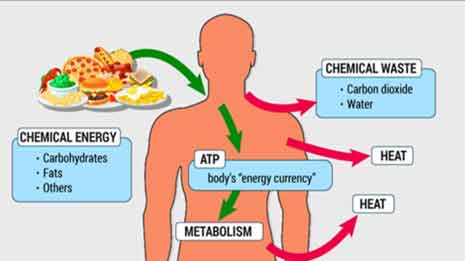Changing to a healthy diet is about more than just eating boiled food and avoiding fat. There are many benefits of eating healthy, including improving your mood and reducing your risk of disease.
A healthy diet includes a variety of foods from all five groups in the right amounts. Here are the top reasons why you should eat healthier:
1. Lowers Risk of Disease
A healthy diet can protect you from some chronic noncommunicable diseases, including heart disease and diabetes. It also promotes growth and development and protects against malnutrition.
The most healthful foods are whole grains, vegetables and fruits. You should also avoid unhealthy fats, added sugar and salt.
Choose protein sources that are low in saturated and trans fats, such as lean meats, fish, eggs, beans and nuts. Eat plenty of fibre, which can help manage blood pressure and reduce cholesterol levels.
2. Increases Energy Levels

Eating healthy increases your energy levels because it provides a variety of nutrients your body needs to function properly. Choose nutrient-dense foods like whole grains (such as quinoa, brown rice and oatmeal), berries, vegetables, nuts, lean protein and low-fat dairy.
Avoid consuming unhealthy foods and drinks, especially those high in sugar or fat. Keep snacks handy to prevent peaks and valleys in your blood sugar that can cause fatigue. Avoid too much caffeine, which can also lead to fatigue.
3. Prevents Weight Gain
With so much conflicting nutrition and diet advice out there, it can be hard to know where to start. However, a healthy diet doesn’t have to be complicated.
Focus on Egészséges táplálkozás whole foods, limiting sugar and sodium and avoiding saturated fats and trans fats. Choose a variety of fruits and vegetables, whole grains, low-fat dairy, lean meats and fish.
Eating a healthy diet helps your body balance the energy you consume with the energy you use. It also prevents you from storing excess energy as fat.
4. Reduces the Risk of Cancer
Research suggests that a diet high in vegetables, whole grains and beans can help lower cancer risk. Eating less meat is also protective against some cancers, though not all types.
The best way to reduce your cancer risk is to maintain a healthy weight and not smoke. It’s also important to eat at least 5 serves of vegetables and 2 serves of fruit each day. These foods contain a range of nutrients, including phytochemicals, that have been shown to decrease cancer rates in studies.
5. Prevents Heart Disease
Eating a variety of nutrient-rich foods, avoiding too much salt and sugar and limiting saturated and industrially-produced fats can help prevent heart disease. A healthy diet should include at least 5 portions of a range of fruit and vegetables (fresh, frozen or canned) every day and limit salt, sugar and saturated fats.
Primary prevention can reduce the risk of heart disease by maintaining normal blood pressure, cholesterol and blood sugar levels. It can also help prevent secondary prevention, which involves a range of lifestyle changes after a heart attack or stroke.
6. Reduces the Risk of Diabetes
A healthy diet provides the body with all of the nutrients it needs. It also helps protect against diseases and promotes health and wellbeing.
A diet low in sugars, salt and saturated and industrially-produced trans fats is essential for good health. It should include staples like whole grains, vegetables and fruits.
Try to eat fish, lean meats, eggs, beans and nuts, and choose low-fat dairy. Choose whole fruit over juices and smoothies as they have a higher fibre content, which slows down the absorption of sugars.
7. Reduces the Risk of Alzheimer’s Disease
Eating healthy can reduce your risk of Alzheimer’s disease by preventing or slowing cognitive decline. In a recent study, researchers found that people who followed the MIND or Mediterranean diet had lower levels of brain plaque and tangles.
Leafy greens, berries, whole grains and fish are all important foods to include in your diet to prevent Alzheimer’s. The good news is that eating a healthy diet does not have to be restrictive. The important thing is to choose the foods that are best for you and your lifestyle.
8. Reduces the Risk of Dementia

Studies suggest that eating a healthy diet that includes lots of fruits and vegetables, whole grains, nuts and fish could reduce your risk of dementia. In fact, one particular diet called the MIND diet, which is based on the Mediterranean diet, has been shown to improve cognitive functioning and slow down mental decline in people with dementia.
Conclusion:
While many risk factors for dementia cannot be controlled, eating well and staying physically active can help decrease the risk by lowering blood pressure and cholesterol, and improving heart health.
